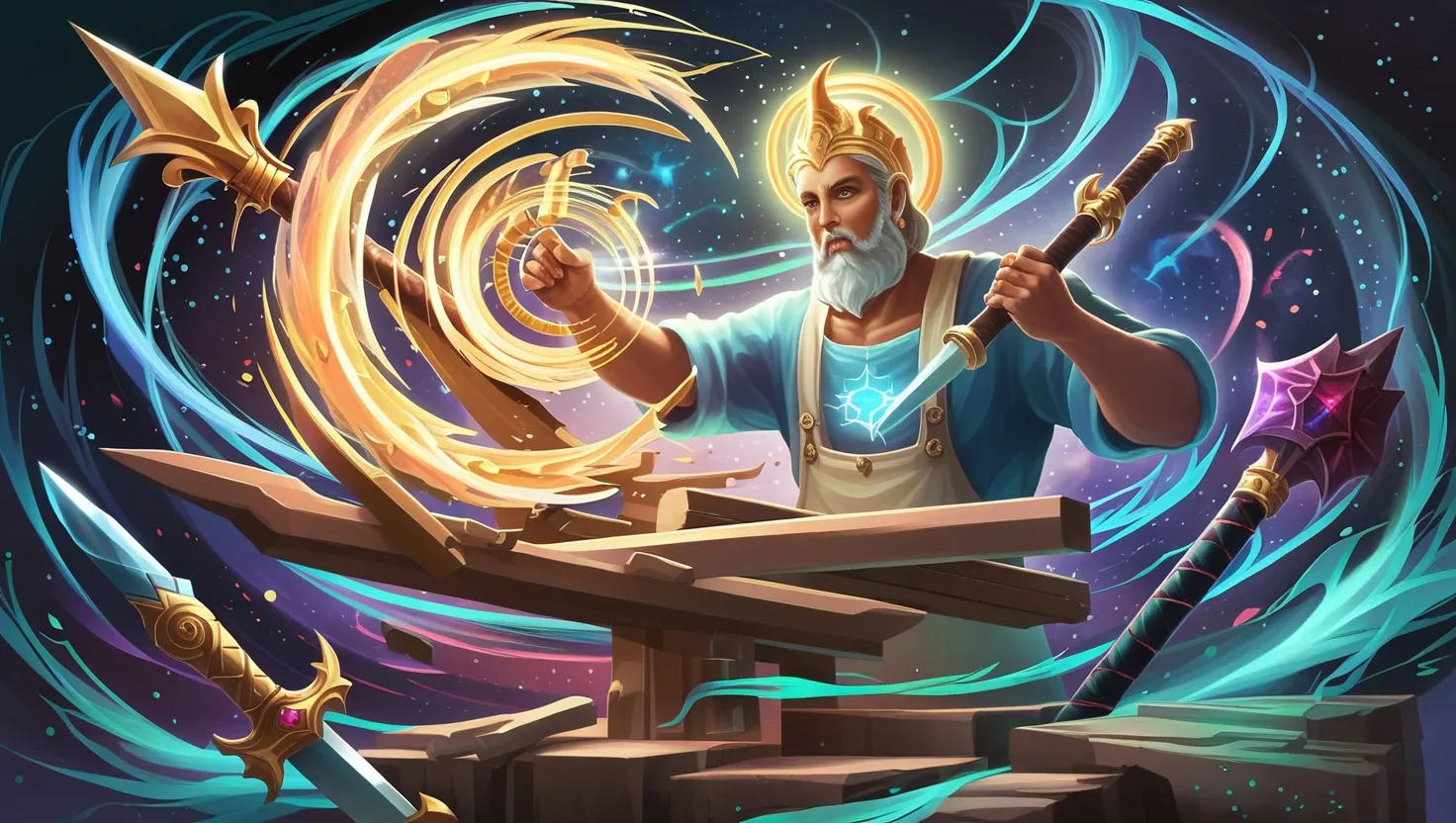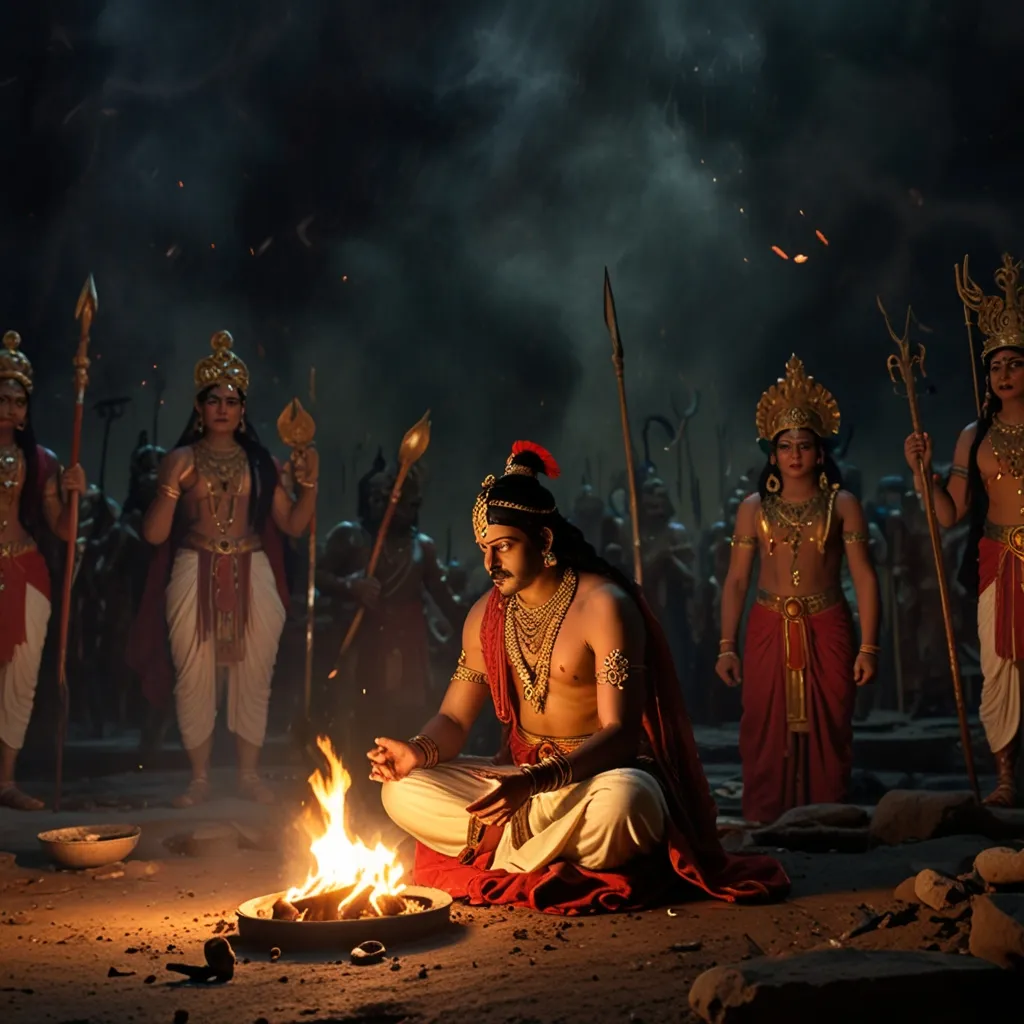King Shibi: The Ultimate Symbol of Kindness and Sacrifice
In the grand tales of the ancient Indian epic, the Mahabharata, there’s this legendary story that keeps getting passed down through generations. It’s all about a king named Shibi, who is celebrated for his incredible kindness and boundless compassion. Honestly, it’s one of those stories that stick with you, teaching some real deep lessons about selflessness and bravery.
So, King Shibi, a ruler of the Chandravamshi dynasty, was well-known far and wide for his solid commitment to justice and an almost unmatched empathy for all living beings. His reputation as a just and genuinely compassionate ruler earned him mad respect from his subjects and even neighboring kingdoms.
One day, something quite extraordinary happened. A dove, chased by a kite, found refuge in Shibi’s lap. Now, this wasn’t just a regular dove; it was actually Agni, the god of fire, who had transformed into a bird to dodge the wrath of Indra, the king of gods. Indra, disguised as the kite, swooped down and demanded King Shibi hand over the dove, claiming it as his rightful prey.
But here’s where it gets compelling. King Shibi, sticking solidly to his principles, refused to give up the dove. He believed deeply that his duty as a king was to protect the weak and the innocent. Indra, relentless as he was, insisted that if Shibi wanted to save the dove, he’d have to offer a substitute of equal weight.
Displaying unmatched dedication, the king decided to offer chunks of his own flesh to balance the weight of the dove. He started cutting off his flesh, placing it on a scale against the dove. The pain must have been excruciating, but Shibi, rock-solid in his resolve, continued sacrificing pieces of his own body until the two sides of the scale were balanced.
Suddenly, as the king endured these horrors on the scale, the dove and the kite transformed back into their true divine forms—Agni and Indra. The gods, moved to the core by King Shibi’s selfless act, showered him with praises. Indra, recognizing the king’s noble heart, restored his body to its original state, healing all his wounds.
This epic tale of King Shibi stands as a symbol of ultimate sacrifice and kindness. It teaches a timeless lesson that true greatness isn’t about power or riches but about the willingness to give up everything for others. King Shibi’s legacy has inspired countless folks throughout history, emphasizing the importance of empathy, selflessness, and a never-faltering commitment to justice.
Apart from this legendary sacrifice, King Shibi had another noteworthy encounter with King Suhotra. Picture this: both of them, seated in their chariots, refused to yield way, each thinking they were the superior king. But then, the sage Narada stepped in and dropped some wisdom bombs about humility and honesty. Impressed by Shibi’s virtues, Suhotra eventually backed down, acknowledging Shibi’s superior character.
The legend of King Shibi spans beyond his own kingdom. His name is even linked with the city of Sehwan in Pakistan, which was once called Shibistan. Established by Raja Dahir, it was later conquered by Mohammad Bin Qasim in the 8th century CE. Additionally, the Pundarikakshan Perumal Temple in Tamil Nadu is said to have been built by King Shibi, according to its sthala purana.
King Shibi’s noble acts are celebrated in various forms and across different cultures. In Buddhist texts, for instance, he’s mentioned as a bodhisattva, portraying the ultimate virtues of generosity, discipline, meditation, and wisdom. His selfless act of donating his flesh to save a pigeon is hailed as one of his most memorable deeds.
In oral traditions, King Shibi’s story often draws comparisons with other tales of sacrifice, like the biblical story of Abraham and Isaac. Such tales underline universal themes like faith, obedience, and the readiness to sacrifice for a higher cause.
King Shibi’s compassion and selflessness make him a cherished figure in Indian mythology. His story reminds us that true heroism is about putting others’ needs above our own, even if it means making the ultimate sacrifice. This timeless tale keeps inspiring people around the globe, teaching us the real value of kindness, empathy, and an unyielding commitment to justice and compassion.
Dive deeper into stories like these, and you’ll find that the characters aren’t just legends from a bygone era; they’re reflections of the values that still resonate today. Whether through grand gestures or small acts of kindness, the essence of King Shibi’s story is something we could all use a bit more of in our lives.






